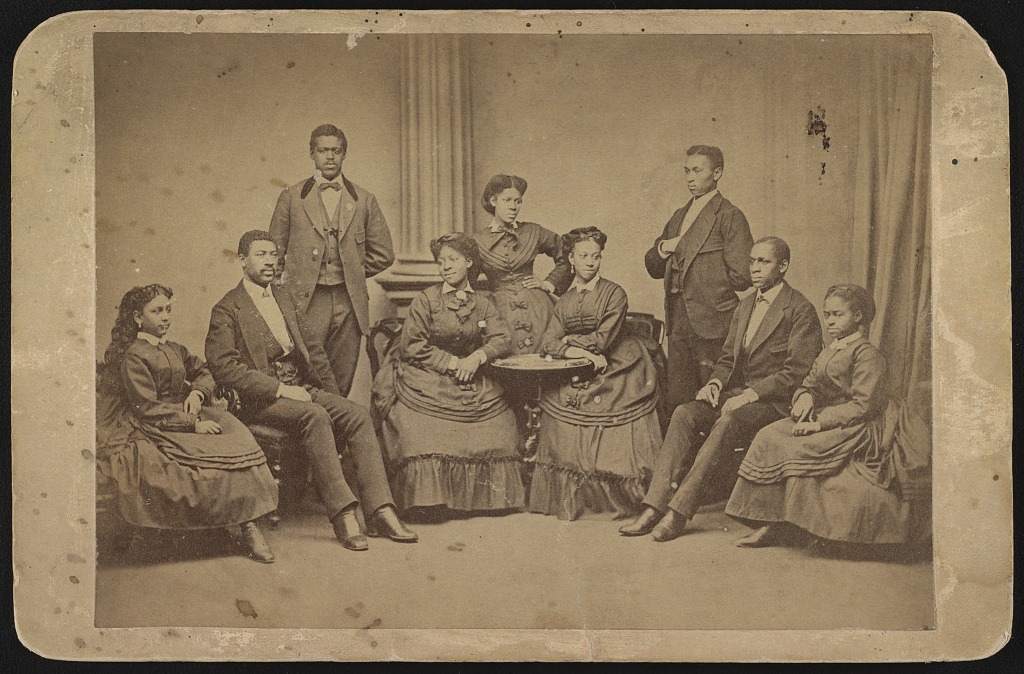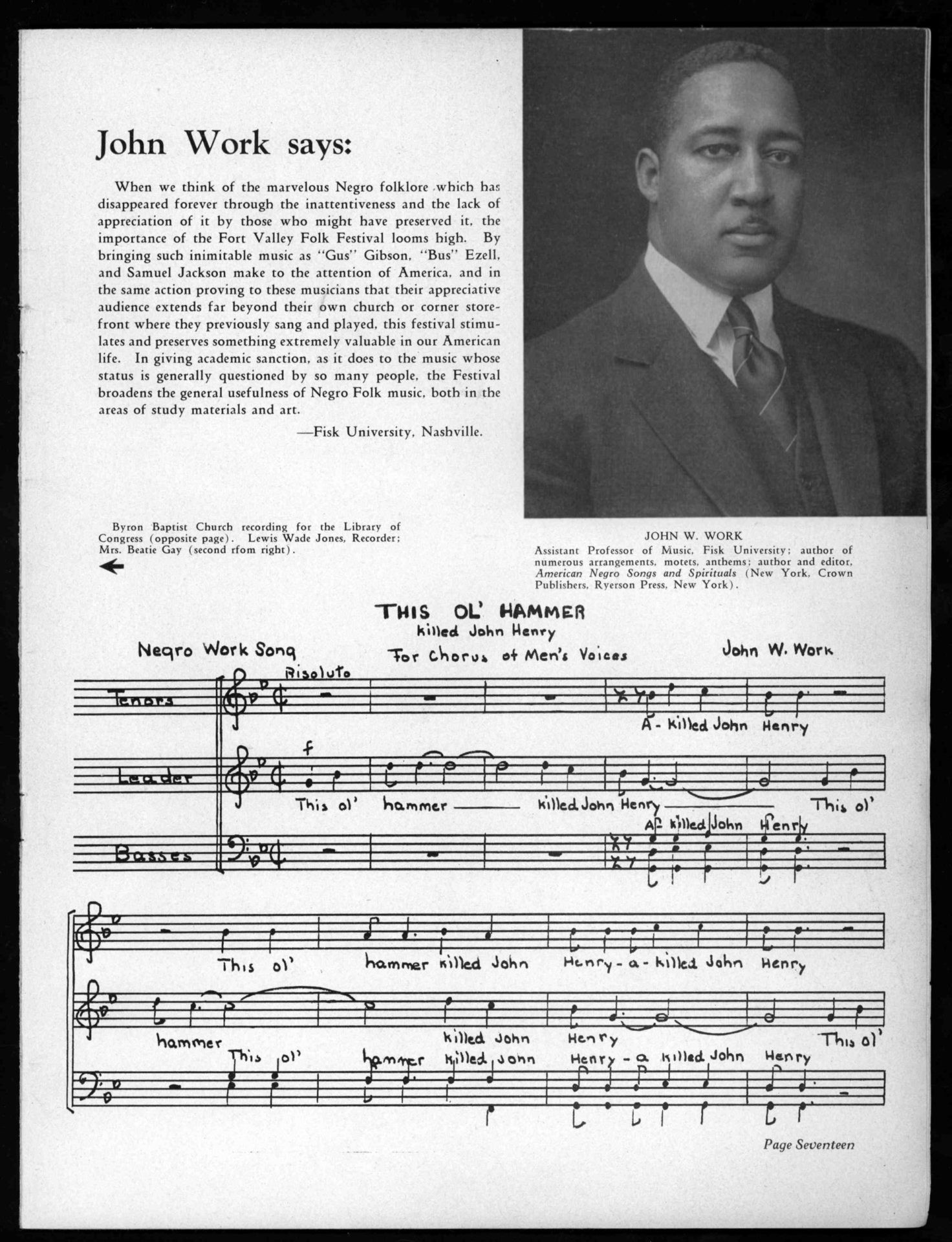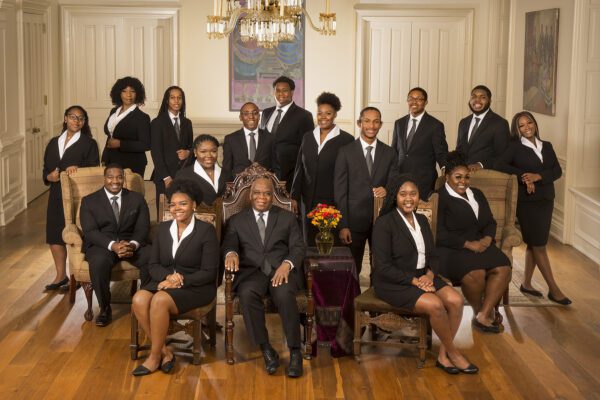From the Mabry Concert Hall at Austin Peay
Fisk Jubilee Singers: History Repeats Itself 150 Years Later
As we live in roiling tumultuous times, as hatred and violence grow, as we question the fellowship of our fellow citizens, we sometimes need respite, some way of seeing signs of goodness and hope around us, some way to commune with one another in peace and harmony. The Fisk Jubilee Singers provided such respite on October 30, 2022. Sponsored by the Clarksville Community Concert Association, at Austin Peay State University’s George and Sharon Mabry Concert Hall, a community of ages from infancy through the elderly, with a healthy sprinkling of college students, waited with anticipation for history to be made once more.

Sixteen attractive, talented, committed young people strode proudly onstage to carry on a tradition begun in 1871. At that time, when the university was only five years old, Fisk treasurer and music director, a white professor, ironically named George Leonard White, formed the original 8-member choir to tour, earning money to keep the fledgling university afloat. Consisting of newly freed slaves, the choir traveled with a pianist and a pastor, Henry Bennett. It was only midway through their maiden tour that they found their joyful name. In an act of true charity, they had donated their meager proceeds to victims of the Chicago fire, so they had no money to keep traveling and the dangers of travel for freed slaves was no small matter. Should they keep going or go on home. As we say in the South, they “prayed on it.”
Rather than wallow in discouragement, they regrouped, naming themselves “Jubilee Singers” after the Jewish Year of Jubilee, celebrating their recent liberation from bondage. And on this Sunday afternoon 150 years later, they liberated the audience from the cares of the world through singing joyfully of a time when cares were paramount, times when oppressive societal rules meant they had to hide their pain of the here and now, aim their happiness to the hereafter, a metaphor for the North.
Because the Singers are an a cappella ensemble consisting of current and recently graduated students, the group has gone through many generations, but this current iteration is one of the finest I have heard in decades. Dressed in neatly tailored black and white, they let the music tell the story of Jubilee Singers through the ages, never turning back, keeping the vow they made when they first took their name, singing: “Done made my vow to the Lord, and I never will turn back. I will go, I shall go, to see what the end will be.”
After this statement of purpose warmed up the audience, the soothing began with a lovely Thomas Rutling arrangement of “Steal Away.” The impeccable timing with no conductor and impeccable pitch in the close pianissimo harmonies were breathtaking. All they had of experience from their homes throughout the US, from Brooklyn and Queens in New York, New Jersey, Connecticut, Michigan, Missouri, Georgia, North Carolina, Mississippi, and of course, right here in Tennessee, all they wanted of majors from music to political science to math, was there in the community they have formed, the beautiful tones matching and blending in sweetness and strength, there for all to hear in their hearts. Often, after a delicate final chord, the audience would sigh in appreciation before bursting into applause.

Many of the works were arrangements by the appropriately named John Wesley Work III. Work was one of the earliest of American ethnomusicologists, dedicated to preserving the music of his people for all time. In addition to his courses and administrative work at Fisk, he notated the music and arranged the tunes with aid from his mother, father, and grandfather, three generations of musicians.
The tradition of close relationships between the Singers, faculty, and alums continues in their current repertoire. Fisk alum Undine Smith Moore (“We Shall Walk Through the Valley in Peace”), like her predecessor Work, earned a graduate degree at Columbia University in New York, one of the few Ivy League schools that welcomed minority students. Paul T. Kwami (“Great Day” and “Down by the Riverside”), the recently deceased director of the Singers, also arranged for the ensemble. But though much of the music was uplifting, songs like “An’ I Cry” arranged by Noah Ryder with lyrics: “Sometimes I feel like I lost my soul again…an’ I cry,” reminded us of periods of hope-tinged hopelessness then and now.
The gorgeous Roland Carter arrangement of “In Bright Mansions,” the acme of a stellar program captured this dichotomy. When the choir held an extended chord that seemed intended for eternity, seamlessly taking breaths, as the lower voices repeatedly intoned John 14:2: “In my Father’s house are many mansions: if it were not so, I would have told you,” I couldn’t help but look at the beautiful skin tones that ranged from bisque to deepest mahogany, the hairstyles that ranged from short afros to waist-length braids. Each of these musicians could be stopped and harassed or worse just as their predecessors were ages ago, just because…
And yet, still they sing. They harmonize, they blend, they take solos, they back up their choirmates. They give something warm and loving to a world that does not always repay them in kind. They sing.
And with the generosity the group has shown since its inception, they serve the same respite function now as they did all those generations ago, over a century ago. Back then, they saved the bricks and mortar of Fisk with music of the spirit. Now, they use that music to soothe the spirit of the world. And although I feel a bit disconsolate about the fact that such respite is still needed, it is nonetheless wonderful that they are still here to provide it.

- About the Author
- Latest Posts
Y Kendall is a Stanford-educated musicologist, specializing in dance history who recently earned an MFA in Creative Nonfiction at Columbia University, studying nonfiction writing with Ben Ratliff and Margo Jefferson. Kendall’s diverse works have been published in Alchemy: Journal of Translation, Columbia Journal, Mitos Magazín, The Hunger Mountain Review, and The Salt Collective, among others. Born and raised in Tennessee, Kendall now lives near Nashville, freelancing as a flutist and writer, while caregiving for relatives.



